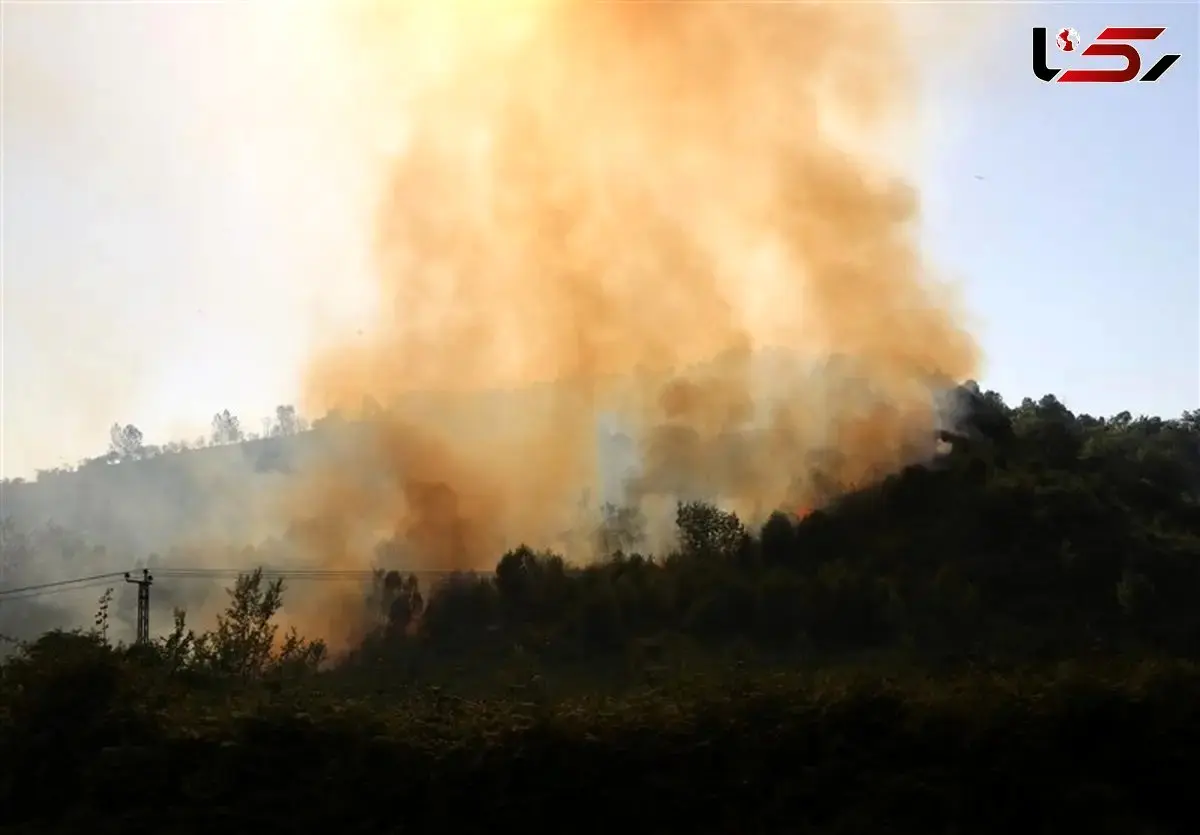Rokna Reports:
National Treasure Burns in Fire / Where Are the Firefighters? Hyrcanian Forest Ablaze, Officials Delayed! + Video
Rokna Social Desk: While flames have been consuming one of the most pristine parts of the Hyrcanian forests for two weeks, no extensive or effective operations by the Natural Resources Organization have been observed. Residents, who witness the fire spreading daily, are angry at the “inaction” of authorities and demand the immediate deployment of professional personnel and aerial equipment to contain a disaster that costs a portion of the national heritage every hour.

According to Rokna’s social affairs reporter, the Hyrcanian forest, millions of years old, is one of Iran’s natural and biological assets. This ecosystem not only hosts rare trees and diverse species but is also recognized as a World Heritage site. However, in recent days, the forest fires have not subsided. Reports indicate that flames have intensified in areas such as “Alit,” near Marzanabad in Mazandaran province.
Wind, warm air, and dry vegetation have created a highly flammable combination, making extinguishment extremely difficult. Local authorities have stated that without helicopters, ground forces cannot fully control the fire.
Meanwhile, officials from the Natural Resources Organization claim that “a large number” of personnel from the Protection Unit, local residents, the Basij, and mountaineers have been deployed to the area. However, for many, this is insufficient, as the extent of the fire and the difficult terrain have made containment highly complex.
Severe Criticism of Natural Resources Authorities
A major point fueling public outrage is the perceived negligence of authorities. Citizens and environmental activists have repeatedly criticized the lack of advanced firefighting equipment. In the past, the shortage of water-dropping helicopters and modern fire suppression equipment in northern forests has been highlighted. Experts note that Hyrcanian forest fires are often human-caused, meaning that with serious management and precise planning, many of these fires could have been prevented.
Reports also indicate that in some past incidents, even when the fire reached hundreds of hectares, local and volunteer forces fought the flames with only basic tools such as shovels and axes.
This situation reflects a serious shortage in equipping the Natural Resources Protection Unit or perhaps a low priority for saving the forest heritage that the general public calls a “national treasure.”
The fire threat to the Hyrcanian forest is not only an environmental disaster but also a serious danger to the delicate biodiversity of this ecosystem. Plant and animal species in this ancient forest are at risk, and repeated fires could have long-term and irreparable effects on their populations.
Moreover, recurrent fires in these forests could accelerate soil erosion, reduce carbon absorption, and ultimately negatively impact the regional climate. Thus, the destruction of the Hyrcanian forest is not merely a local problem but part of a broader environmental crisis.
Public Demands: Not Pleas, But Rights
The voice of the people, environmental activists, and media is clear: more firefighting and protection forces must be sent to the fire-affected areas, particularly those with mountain experience.
Immediate and coordinated use of water-dropping helicopters is essential; officials who have stated that the fire cannot be controlled without helicopters must provide the necessary resources.
Local forces should be equipped with more professional tools (not just shovels and axes) for effective firefighting in hard-to-reach areas. Natural resources authorities must provide precise, continuous reports on fire statistics, affected areas, and damages to the public.
Local communities should become stakeholders, receive training, and participate in fire prevention and monitoring teams, as they are the best observers deep within the forest.
Extinguish the Fire, But Heal the Wounds
The fire in the Hyrcanian forest is not a temporary disaster; it is a warning for the future of our natural heritage. If we allow weak response and poor management today, tomorrow, the forest that generations have taken pride in could become a bitter memory of burning and ashes.
People have the right to demand action—not only to extinguish the fire but to ensure that future fires are prevented before they flare up. The Natural Resources Organization, local authorities, and the government must be accountable this time, and their response must be strong, transparent, and immediate.
Send Comments